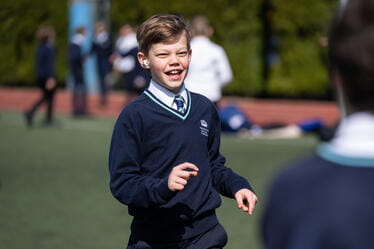Theory of Knowledge (TOK) As part of its Learner Profile, the IBO wants its students to be Inquirers.
As part of its Learner Profile, the IBO wants its students to be Inquirers.
TOK is an examination of how we know what we know, and is therefore the subject that helps prompt this inquiry across the curriculum and beyond. To that end, every day is a busy TOK day.
However, as a Core Diploma subject, it also requires the production of work for assessment, and both IBDP Year groups are currently very much concerned with its production.
So for some, it’s been particularly busy of late.
Year 13
Year 13 are currently completely focused on their official assessment pieces: the essay and the presentation (worth 2/3 and 1/3 of the final grade respectively). The presentation asks students to apply TOK thinking to a real-life situation, while the essay takes a more conceptual starting point.
Some of the presentation topics undertaken by our students this year include the consequences of limiting free speech, implications of bias on historical representation, the ethical implications of corporal punishment, the knowledge issues arising from capital punishment, the ethical implications of artificial intelligence and the reliability of communication in connection to sense depravation.
The essay, meanwhile, must concentrate its 1600 words on one of six prescribed titles stipulated by the IBO. This year, they ask students to discuss the following issues:
- Accepting knowledge claims always involves an element of trust.
- Within areas of knowledge, how can we differentiate between change and progress?
- Labels are a necessity in the organization of knowledge, but they also constrain our understanding.
- Statistics conceal as much as they reveal.
- Areas of Knowledge are most useful in combination with each other.
- Avoiding bias seems a commendable goal, but this fails to recognize the positive role that bias can play in the pursuit of knowledge.
Students are currently working on the essay in class, having prepared outline responses shortly before their recent examinations. The remaining lessons before Xmas will see them hone these ideas into structured arguments that focus on the knowledge implications of the examples chosen in time for submission of the draft version on January 7th. There will then be time to review and redraft the work ready for the final submission on January 29th.
Year 12
So far this term, Year 12 have considered the aims of TOK, the structure and assessment of the course, the nature of knowledge and how we acquire it, and the key ways in which we navigate the world as knowers. They have also been asked to think about the ways in which we develop our ethical awareness of the world, and the role that different areas of knowledge (particularly the arts and the natural sciences) play in this. They have also considered the different contexts that might affect our moral outlooks, such as whether one is the product of an indigenous, or a large-scale, industrialized society.
As Year 12 are embarking on a brand new iteration of the TOK course, they will not have to prepare a presentation like Year 13. Instead, this component being replaced by the TOK Exhibition: a live or virtual exhibition comprising of a written examination of three objects based on one of 35 prompts supplied by the IB. Together, these examinations should consist of no more than 950 words and must explore how TOK manifests in the world around us. Examples of these prompts include:
- What is the relationship between knowledge and culture?
- What role do experts play in influencing our consumption or acquisition of knowledge?
- How important are material tools in the production or acquisition of knowledge?
- How might the context in which knowledge is presented influence whether it is accepted or rejected?
- How can we distinguish between knowledge, belief and opinion?
- Does our knowledge depend on our interactions with other knowers?
To this end, Year 12 students have recently begun composing the first of these examinations as preparation for the final submission at the end of Year 12.
Gruffudd Jones
Teacher of English, Year 12 Tutor,
Extended Essay and Theory of Knowledge Coordinator






